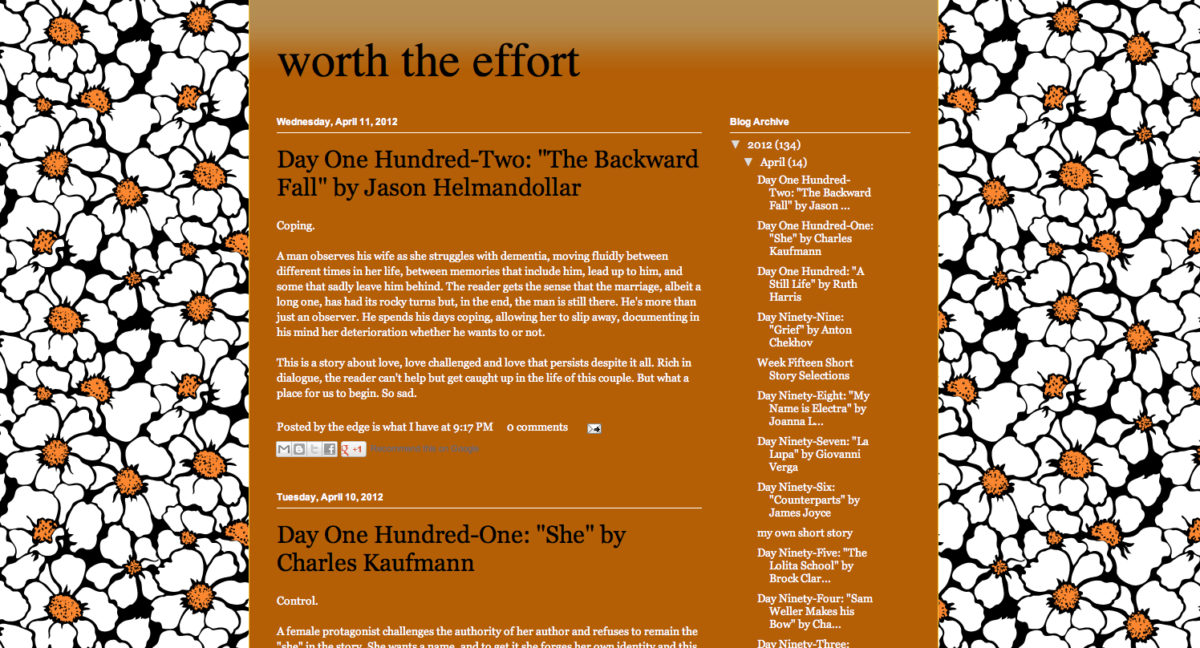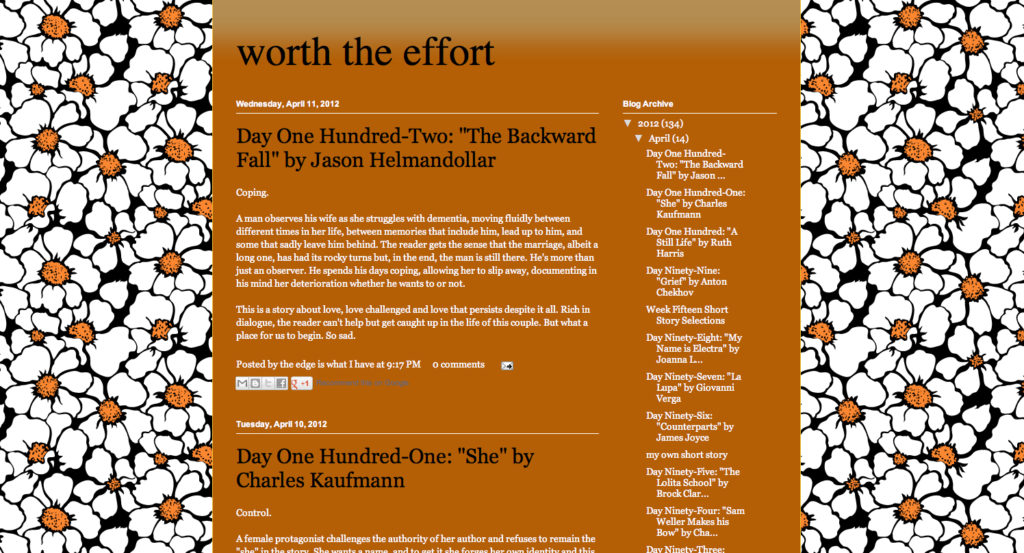 This week we have an exclusive interview at StoryADay.org with James Scott Bell, the #1 bestselling author of the writing book Plot & Structure, and thrillers like Deceived, Try Dying, Watch Your Back, One More Lie and many more.
This week we have an exclusive interview at StoryADay.org with James Scott Bell, the #1 bestselling author of the writing book Plot & Structure, and thrillers like Deceived, Try Dying, Watch Your Back, One More Lie and many more.
He stopped by StoryADay.org to talk about the importance of writing routines and practice — a topic dear to our hearts, and the subject of his book Writing Fiction for All You’re Worth: Strategies and Techniques for Taking Your Fiction to the Next Level.
StADa: Do you consider it important for aspiring writers to have a regular writing routine?
JSB: Boy, do I. In fact, that is the single most important piece of advice I ever got, and I’m glad I got it at the beginning. I do a weekly quota of words and break that down into 6 days (I usually take Sunday off from writing, to recharge my batteries). I keep track of all the new words I write and usually work on two projects or more during any given day. If I happen to miss my daily count I know I can make it up on other days.
The really nice thing is that, at some point, you look up and you have a completed book. It’s done. You did it. It’s a tremendous feeling. Then you have something to edit. And you just keep doing that, over and over again.
StADa: One look online tells you that there is a lot of competition out there. How can a writer keep his/her motivation up, without becoming discouraged by or envious of other writers who seem to be doing ‘better’?
JSB: There are lots of ways for writers to make themselves miserable. Comparison is one surefire method. Because there is ALWAYS someone else doing better than you are. Always. You don’t even realize that there are lots of people not doing as well as you, either. But either view is wrong. It doesn’t help you to compare with someone selling more, and it doesn’t help you to feel superior to someone who isn’t.
Enough writers, like Ann Lamott and Elizabeth Berg, have written about envy and the like to know that it can sneak up on a writer. If it does you should immediately get lost in your own project. Get to the keyboard. Write your heart out. Soon enough you’ll be into that and the other stuff fades away.
Also, remember this is just one aspect of life. There is a lot more to living well than selling books. First, figure out how to live well. Then write.
StADa: It’s easy to ‘publish’ a work quickly today. What advice would you give the StoryADay community about what to do with the 31 first drafts they’re going to end up with on June 1?
JSB: Congratulations! A first draft is wonderful thing to have. It means a completed work, and that’s always a good thing. Robert A. Heinlein, the famous science fiction writer, once said there are two rules for writing:
- 1. You must write
- 2. You must finish what you write
Also, don’t think that a finished draft is ready to go out without a strong revision strategy. I wrote a whole book, Revision & Self-Editing, to help writers think that through in a systematic way. It’s important to know what you’re doing at every stage.
I’d also add, be working on your next book. And thinking up ideas for the one after that. And keep this up as long as you live.
You’re a writer, after all. It’s what you do.
000OOOooo
Thanks, Jim!
James Scott Bell has been called a writer of “heart-whamming” fiction (Publisher’s Weekly) “a master of suspense” (Library Journal) and a fresh voice in the “territory of Hammett and Chandler.” (Booklist).A former trial lawyer, Jim now writes and speaks full time. He lives in Los Angeles. He blogs every Sunday at The Kill Zone.

![[Interview] – Writing A Story A Day with Vanessa Matthews](https://storyaday.org/wp-content/uploads/2012/04/VanessaMatthews1.jpg)



 The idea behind DIY MFA is to simulate the experience of a Master of Fine Arts degree in Creative Writing without actually going to school. DIY MFA has 4 main components: Reading, Writing, Workshops and Community. The original DIY MFA (which took place in September 2010) covered these four topics at length.
The idea behind DIY MFA is to simulate the experience of a Master of Fine Arts degree in Creative Writing without actually going to school. DIY MFA has 4 main components: Reading, Writing, Workshops and Community. The original DIY MFA (which took place in September 2010) covered these four topics at length.

